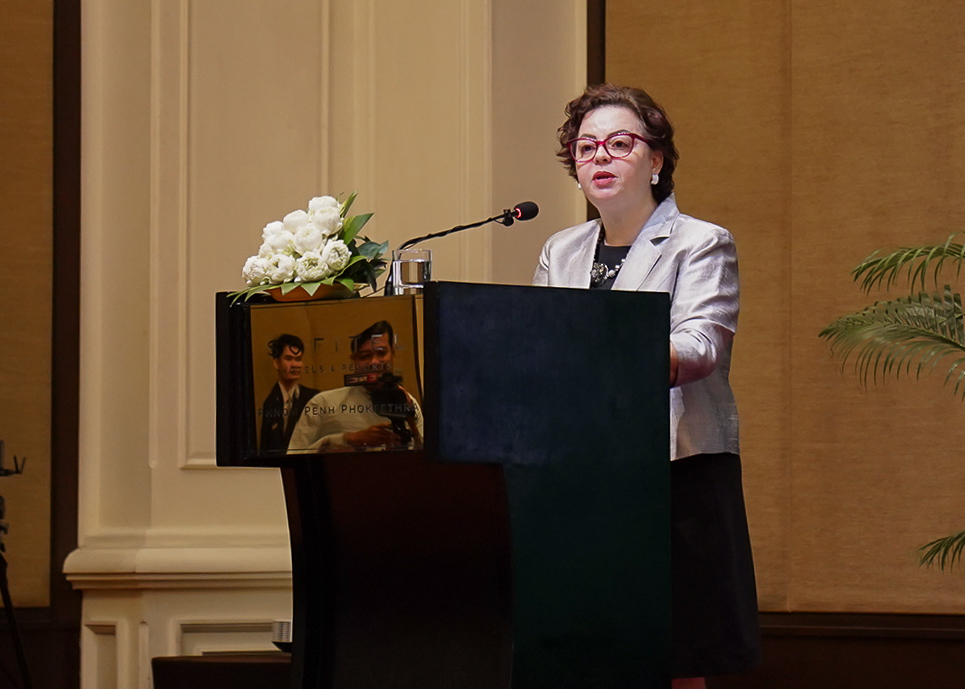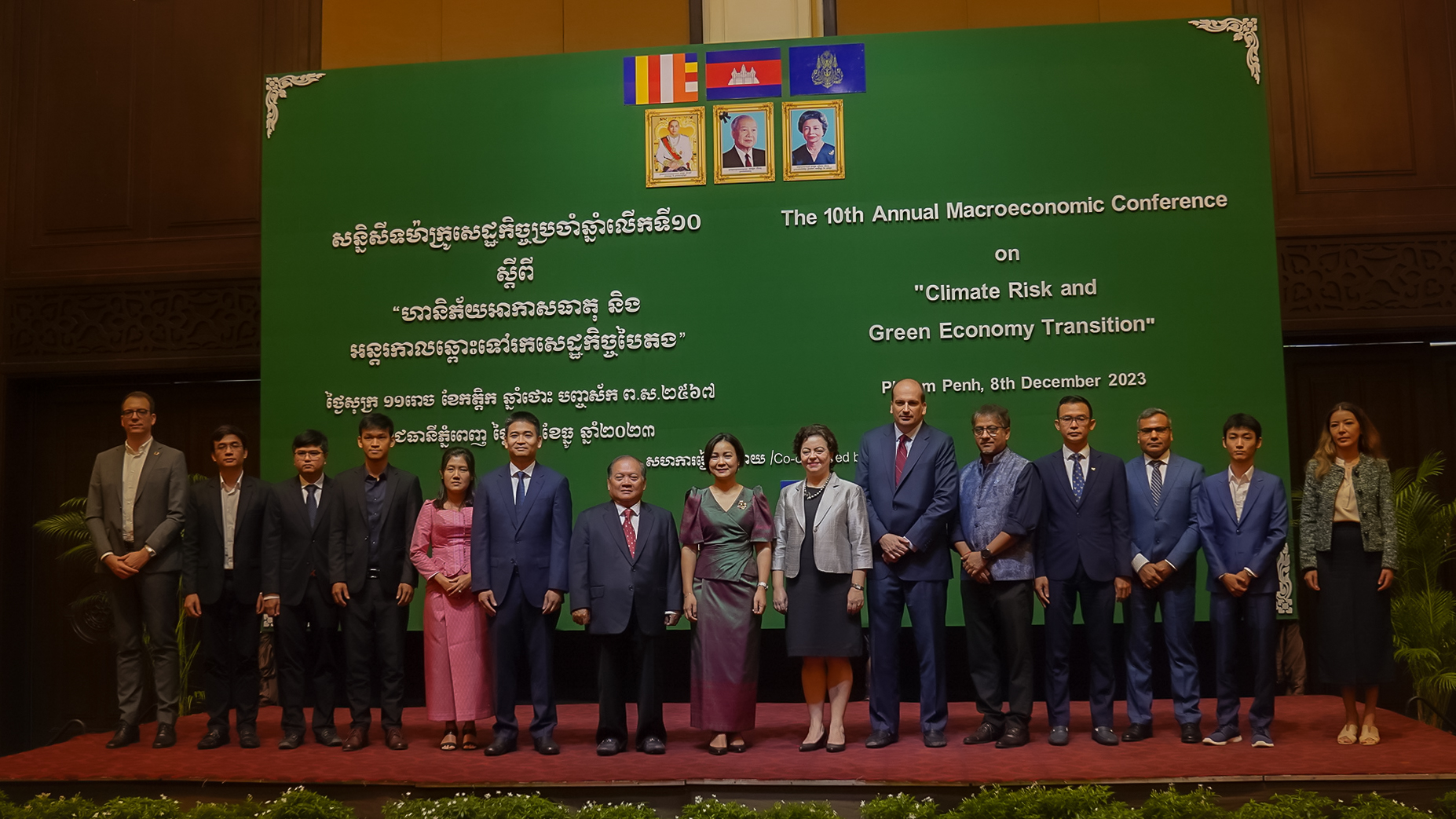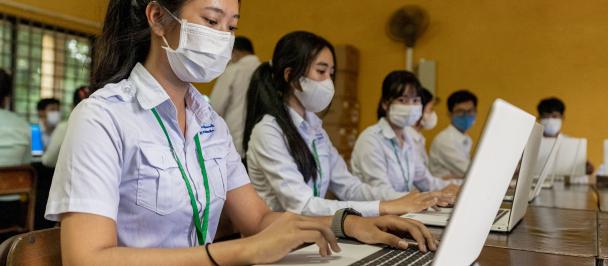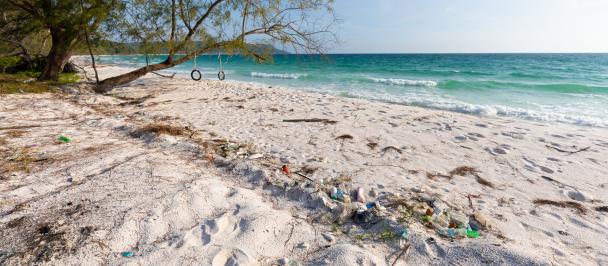Opening Remarks by Ms. Alissar Chaker, Resident Representative, UNDP Cambodia
The 10th Macroeconomic Conference of the National Bank of Cambodia Climate Risk and Green Economy Transition
December 8, 2023

- H.E. Dr. Chea Serey, Governor of the National Bank of Cambodia
- Excellencies, distinguished speakers, colleagues
Ladies and gentlemen
Choum Reap Sour!
I am delighted to participate again this year in the National Bank of Cambodia’s Annual Macroeconomic Conference, which has become a well-awaited annual ritual. Every year, the conference serves as a valuable platform for convening government officials, development partners, the financial community, experts, and researchers, and for fostering research and policy dialogue on the optimal development model for attaining the Kingdom’s development ambitions.
I wish to congratulate the National Bank of Cambodia on the choice of this year’s theme “Climate Risk and Green Economy Transition,” a topic centered on one of the timeliest debates in public policy and development. For the larger part of the previous century, economic models have been designed for economic growth at the cost of ecology and social equity, creating imbalances between and within countries, spurring climate change and associated vulnerabilities, biodiversity losses, and non-inclusive growth. By transforming the economy into a driver of sustainability, countries will be primed to manage the major challenges of this century, notably, resource scarcity, pollution, climate change, and economic volatility. There is a wide recognition for the need for an alternative vision for growth and development; one that recognizes the necessity for economic growth while reducing economic externalities and unsustainable pressure on the quality and quantity of our natural resources and our ecosystem.
In 2023, the world stands at a critical crossroads as it is grappling, in addition to the challenges mentioned above, with a series of devastating disruptions, notably, the lingering effects of COVID-19, the impact of wars, and the cost-of-living crisis. These were strongly felt in Cambodia which is also considered one of the most vulnerable countries to climate change. The Kingdom is gearing up for LDC graduation, and endeavors to maintain or rather increase its growth rate and boost its trade competitiveness in times where markets and consumers are more aware of and demanding for sustainability. A new growth model for the kingdom that can generate growth and improvements in people’s lives in ways consistent with sustainable development is needed.
In the pursuit of reinstating economic growth and achieving poverty reduction targets, countries are struggling to deliver tangible actions on green growth and climate commitments, despite good intentions. Success is preconditioned by well-developed and financed strategies and enabling regulatory and financial ecosystems to put them into effect. To this challenge, promoting a green economy has emerged as a potent policy tool for the achievement of sustainable and inclusive development in an environmentally conscious, resource-efficient, and socially inclusive manner. All are prerequisites for human security, prosperity, and well-being. The Royal Government of Cambodia has prudently embraced this sustainability and climate-resilient economic model in its Pentagonal Strategy and other sectoral policies and plans. Advances have also been made in this direction.
UNDP and other sister UN agencies have been supporting the country’s transition towards a more sustainable and greener economic model to accelerate its progress on socio-economic development. The UNDP new Country Programme 2024-2028 is in strong alignment with the Pentagonal Strategy and other key national plans, particularly the Nationally Determined Contribution (NDC) for domestic greenhouse gas emissions, and Cambodia’s Long-Term Strategy for Carbon Neutrality by 2050. The largest pillar in the Programme aims to advance climate action and nature-based solutions for growth and human security through 1) Strengthening the management of natural resources; 2) Accelerating the adoption of a circular economy; and 3) Advancing climate action.
On financing specifically, UNDP is supporting the government to scale up climate finance, moving from funding to financing mitigation and adaptation, promoting the use of financial resources in a strategic manner, and blending national resources with other sources of financing.
Accordingly, UNDP has been supporting climate responsive budgeting and the development of different financing instruments for carbon markets, payments for ecosystem services and blended finance mechanisms. I would like to highlight green and thematic bonds, which can offer an opportunity for Cambodia to mobilize financial resources and investment for accelerating the achievement of the Sustainable Development Goals, known as the SDGs. After supporting a feasibility study and facilitating the transfer of experience from other countries, UNDP is now providing technical assistance to the Ministry of Economy and Finance to develop the needed capacities and enabling ecosystem for the issuance of a green or thematic bond, in partnership with the United Nations Economic and Social Commission for Asia and the Pacific, the Global Green Growth Institute, and the Securities and Exchange Regulator of Cambodia.
I would also like to mention the “Cambodia SDG Investor Map”, launched last year, which highlights investment opportunity areas for the private sector to play an active role in Cambodia’s resilient, sustainable, and inclusive development. This market intelligence tool helps to inform private investors about green investment opportunities with high growth potential and social benefits. We are now doing a deep dive focusing on investment opportunities with high benefits for adaptation to climate change. A 2020 study by the Ministry of Economy and Finance and UNDP predicted that 9.8% of the GDP could be lost by 2050, even under an optimistic scenario, as disasters driven by the climate crisis are increasing impacting infrastructure, lives and livelihoods.
Beyond these initiatives, UNDP will continue its support to the Royal Government of Cambodia in scaling up climate finance and to assist in achieving the national climate agenda through ambitious finance strategies. Looking to the future, I am optimistic that this will help mobilize greater public and private financial investment in green and sustainability initiatives, unlocking new opportunities to accelerate Cambodia’s development and growth.
Excellencies, ladies and gentlemen,
I would like to end by commending the leadership and vanguard role of the National Bank of Cambodia in fostering reflection and dialogue on such important issues and wish our distinguished discussants, presenters, and participants fruitful discussions and deliberations.
Orkun Chroeun!


 Locations
Locations




